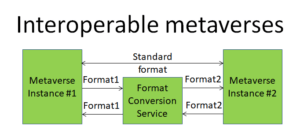My speech is about how challenging goals are often the result of a team work inspired by a vision made possible by knowledge.
There is a social interest that challenging goals are conceived and successfully executed. Goals are set by humans, but how do humans work?
As I am talking to a club of IT managers, I will try and make an analysis of humans as computers using using computer science language
- Hardware is given by parents
- BIOS is formed through the education given by parents in the first years of life
- Oerating System is provided by generalist education
- Drivers are the results of specialist education
- Application software is made up of experience
We are not able yet to act on hardware (although we are working on it), but we can act on the other elements.So it is appropriate to ask how well we are doing it
- How good are we, as parents, at providing basic education?
- How well do we follow our kids’ elementary, middle and high education?
- How effective is our university education?
- Which formative experiences are we providing? Is Erasmus enough?
I would like now to study how the higher portion of my “software stack” was built.
- The Salesians at the Valsalice Classic Lyceum who gave me my vision of the world
- The professors at the Polytechnic of Turin who taught me to be an engineer
- The people at the University of Tokyo where I got my PhD in Electrical Communication
- My 30+ years of work at CSELT, a place built when Italy thought she could sit at the same table of countries which equate research with future
- They say “behind a great man there is a great woman”. I do not know if I am a great man, but for sure my wife is a great woman.
Society has made a big investment on me, so it is natural to ask how productive my software stack has been.
My work led me to be a part of the epochal transition from analogue to digital media, but my education motivated me to work to prevent the creation of those technology barriers that have place audio-visual communication in analogue times. The MPEG group, that I established with an effort recounted elsewhere, was the tool to achieve my goal.
Overall I think that the contribution that MPEG has given to humankind can be described as providing the tools to enable the achievement of an important part of the Universal Declaration of Human Rights: “Everyone has the right to seek, receive and impart information and ideas through any media and regardless of frontiers“.
This may appear a little brainy so let me recall some practical results achieved:
- MP3, DVD, digital TV, video on mobile and many more things
- Has kicked off the creation of an industry worth several hundreds of B€
- Has succeeded in realising convergence of signal processing and IT
- Has caused those tectonic movements in the industry that are in front of us
My chagrin is that Italy has been unable to draw benefits from all this. To the contrary it has sold those industrial realities, like Telettra, that were poised to exploit the standards while the other were staying around looking at what was happening. Today the situation has not improved: there is a lot of watching and talking, but little doing.
What should I do? I could look back 2,500 years ago in China where Confucius is said to have toured the different kingdoms of China of that time trying to convince kings and princes to adopt his philosophy, As I am no Conficuius I stay at home in Villar Dora and those who want to talk to me can visit my home or else come to Turin where I have a company that has developed a platform called WimTV whose purpose is to provide an environement where the value of content can be maximised through automatic handling of rights and their monetisation. Platform users define their business model and WimTV executes it.
To counter those who may think that there are already other platforms that do the same, I would just point to the difference between YouTube‘s and WimTV‘s terms of service.
MPEG is the result of a team work that extends ovber 1/4 of a century where thousands of expers from more than 25 countries and more than 300 companies could freely join and participate in the development of standards using an open consensus-based decision process, and finally return to their companies to exploit the standards developed.
The MPEG currency is a mix of competition and collaboration, but this does not mean that those coming to MPEG should make a pledge of poverty, chastity and obedience. Regularly there are epic battles to adopt technologies that are typically protected by patents.
Why this? Because MPEG has a simple but effective business model: develop standards that have the goal of achieving the best performance, possibly at the cist of introducing patented technologies in standards. Those who receive royalties will likely invest them in new technologies that may, if the investment bore fruits, become candidate for new generation of standards.
I would like to use a snippet of a famous song that well represents how I put all myself in the MPEG adventure
For what is a man, what has he got?
If not himself, then he has naught.
To say the things he truly feels;
And not the words of one who kneels.
The record shows I took the blows –
And did it my way!

